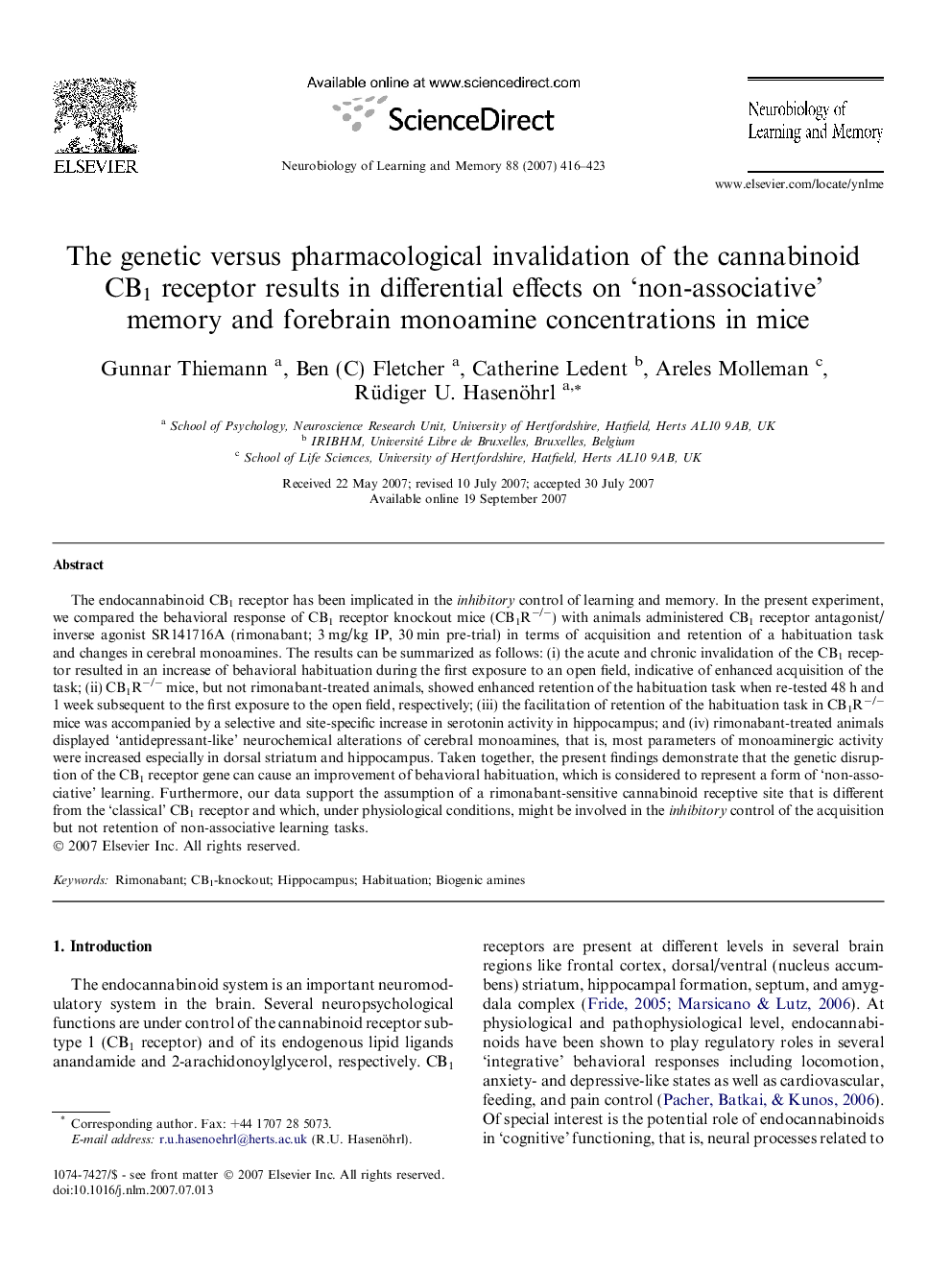| Article ID | Journal | Published Year | Pages | File Type |
|---|---|---|---|---|
| 937282 | Neurobiology of Learning and Memory | 2007 | 8 Pages |
The endocannabinoid CB1 receptor has been implicated in the inhibitory control of learning and memory. In the present experiment, we compared the behavioral response of CB1 receptor knockout mice (CB1R−/−) with animals administered CB1 receptor antagonist/inverse agonist SR141716A (rimonabant; 3 mg/kg IP, 30 min pre-trial) in terms of acquisition and retention of a habituation task and changes in cerebral monoamines. The results can be summarized as follows: (i) the acute and chronic invalidation of the CB1 receptor resulted in an increase of behavioral habituation during the first exposure to an open field, indicative of enhanced acquisition of the task; (ii) CB1R−/− mice, but not rimonabant-treated animals, showed enhanced retention of the habituation task when re-tested 48 h and 1 week subsequent to the first exposure to the open field, respectively; (iii) the facilitation of retention of the habituation task in CB1R−/− mice was accompanied by a selective and site-specific increase in serotonin activity in hippocampus; and (iv) rimonabant-treated animals displayed ‘antidepressant-like’ neurochemical alterations of cerebral monoamines, that is, most parameters of monoaminergic activity were increased especially in dorsal striatum and hippocampus. Taken together, the present findings demonstrate that the genetic disruption of the CB1 receptor gene can cause an improvement of behavioral habituation, which is considered to represent a form of ‘non-associative’ learning. Furthermore, our data support the assumption of a rimonabant-sensitive cannabinoid receptive site that is different from the ‘classical’ CB1 receptor and which, under physiological conditions, might be involved in the inhibitory control of the acquisition but not retention of non-associative learning tasks.
